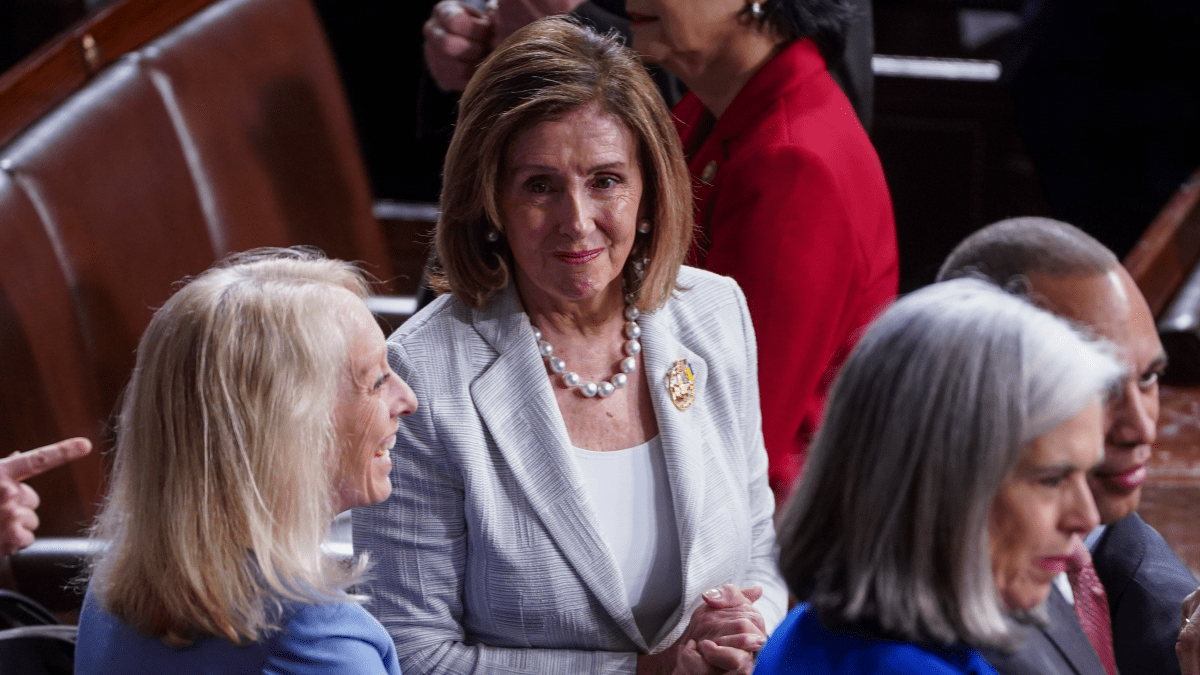Washington.- The agenda around the student loans of President Joe Biden would be practically annihilated by the debt legislation of the United States, approved by the Republicans of the House, condemning it to its massive cancellation, eliminating a more generous loan payment option and prohibiting permanently future regulations around student debt.
Republicans see it as a win for taxpayers. Democrats say it would hurt the economy and lock out college students who need financial aid.
The Republican bill would cancel Biden’s two main proposals on student debt: a one-time cancellation of up to $20,000 for more than 40 million Americans and an updated loan repayment plan that could lower monthly payments.
It would also suspend a pause on federal student loan payments, forcing borrowers to pay off their debts ahead of schedule.
On the House floor Wednesday, Republican Rep. Virginia Foxx, chair of the Education and Labor Committee, said Biden’s plan for student debt was an obvious target as the government tightens spending.
Estimated to cost more than $500 billion, Biden’s plan for student debt is an attempt to provide free college education “at the expense of working-middle-class America,” said Foxx of North Carolina.
Biden has threatened to veto the legislation, and his student debt cancellation plan is considered untouchable by some Senate Democrats who could kill the bill. Some of the strongest supporters of the cancellation have included Majority Leader Chuck Schumer and Sen. Bernie Sanders, chairman of the Health, Education, Labor and Pensions Committee.
Lawmakers from both parties generally agree that the student loan system is broken, but they have different approaches to fixing it. The issue has become a point of contention in recent years due to rising college costs and a national student debt that now exceeds $1.6 trillion.
For Republicans, the fight offers a new opportunity to attack Biden’s policies on student debt, which they see as excessive. Conservative opponents have already managed to temporarily stop its cancellation in court, and it is now being reviewed by a conservative-leaning Supreme Court.
Unlike the Republican demands, however, the new legislation targets the full suite of Biden plans, including a proposed payment plan that has mostly avoided the kind of scrutiny received by the mass cancellation.
Biden’s payment option would mostly replace four existing income-based payment plans, with much more generous terms.
For example, it would limit monthly payments to 5 percent of the borrower’s income, up from 10 percent now. And it would charge nothing to those with an annual income of less than $30,000. No interest would be charged as long as payments were made on time.
The plan was formally proposed in January but has not yet been finalized. Under the Republican bill, it would be repealed.
Going a step further, the Republican plan would permanently bar the Department of Education from issuing any future regulation that would increase the costs of the federal student aid program. That would be a drastic change in the way the agency does business.
Administrations from both parties have used their regulatory power to update the loan program without recourse to Congress. The Trump Administration used that authority to erase the debt of disabled veterans in 2019, and Biden used it to reform a debt forgiveness program for public workers.
Borrower advocates criticize the Republican bill, saying it would make the student debt crisis worse.
Blocking the new payment plan “would remain a debt trap for any borrower who doesn’t make enough money to pay their monthly bills,” said Mike Pierce, executive director of the Center for Student Borrower Protection.
The bill’s impact could go far beyond student debt. The Department of Education estimates that it would require a 22 percent budget cut in some of its largest programs.
The department estimates it would have to cut federal Pell grants, intended for students with significant financial need, for 80,000 college students, and the maximum grant amount would be reduced by $1,000 for all other borrowers. It would also bring a $4 billion cut in federal money for the nation’s poorest schools and cut other funding for student mental health.
“The reduction in Pell Grants is killing the educational dreams of millions of Americans,” said Justin Draeger, president and CEO of the National Association of Student Aid Administrators.
Foxx questioned the department’s accounting for the reductions, saying the bill doesn’t say a word about Pell grants.
“If Democrats spent half the time working with Republicans instead of spreading fear, we wouldn’t be in this situation in the first place,” Foxx said in a statement.
Education Secretary Miguel Cardona criticized Republicans for their “reckless recklessness,” saying the bill would take us “backwards” and undermine efforts to help students recover from the pandemic.
Rep. Bobby Scott, the top Democrat on the House education panel, rejected the bill as “a bad deal for the American people.”
“I want to stop being chastised by the Republicans when it comes to fiscal responsibility, because we know that every Republican Presidential Administration since Nixon has left office with a worse deficit situation than the one they inherited,” Scott said on the floor of the Chamber on Wednesday.





